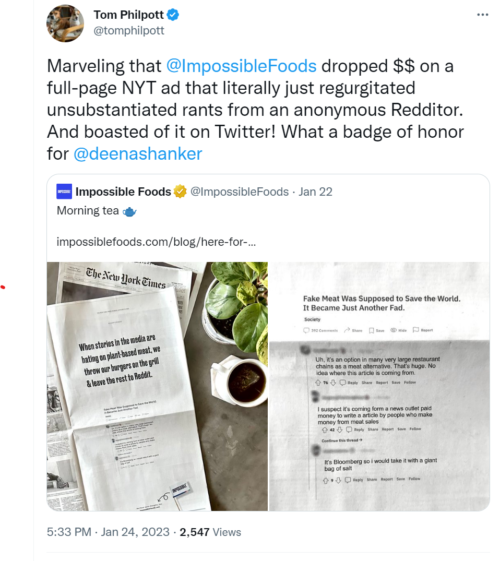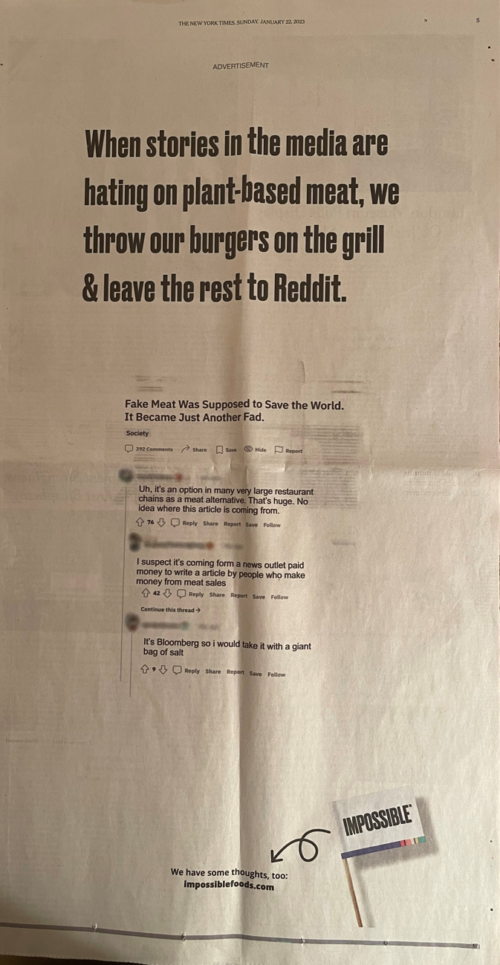Industry-funded study of the week: plant-based meat alternatives
Plant-Based Meat Analogs and Their Effects on Cardiometabolic Health: An 8-Week Randomized Controlled Trial Comparing Plant-Based Meat Analogs With Their Corresponding Animal-Based Foods. Toh DWK, Fu AS, Mehta KA, Lam NYL, Haldar S, Henry CJ. Am J Clin Nutr. 2024 Jun;119(6):1405-1416. doi: 10.1016/j.ajcnut.2024.04.006. Epub 2024 Apr 8.
Erratum in: Am J Clin Nutr. 2024 Aug;120(2):459. doi: 10.1016/j.ajcnut.2024.06.012.
This study compared effects on cardiometabolic health among people eating meat or plan-based alternatives for 8 weeks.
Conclusion: An 8-wk PBMA (plant-based) diet did not show widespread cardiometabolic health benefits compared with a corresponding meat based diet.
Funding: This study was supported by Pinduoduo Incorporated (HongKong Walnut Street Limited). Pinduoduo Incorporated had no role in study design, study conduct, laboratory analyses, data collection, management and interpretation or the writing, reviewing and approval of the manuscript.
Comment
This study was sent to me by a reader, who viewed it as a rare example of an industry-funded study with results unfavorable to the sponsor’s interests. He thought the “Walnut” in the company’s name indicated a plant-based bias.
I wasn’t so sure and wondered what Pinduoduo did, exactly.
According to Wikipedia, “Pinduoduo Inc. (Chinese: 拼多多; Pinyin: Pīn duōduō) is a Chinese online retailer with a focus on the traditional agriculture industry. The business is the largest product of PDD Holdings, which also owns the online marketplace Temu.”
But it gets even better. The American Journal of Clinical Nutrition published a correction to the paper:
The original funding statement was insufficiently elaborated and has been revised for greater clarity: Christiani Jeyakumar Henry [the senior investigator on this study] reports partial financial support provided by Pinduoduo Incorporated (HongKong Walnut Street Limited) which is an agricultural research firm.
This, then, is a standard example of an industry-funded—and conducted—study producing just the results wanted. Another example of marketing research, alas.




